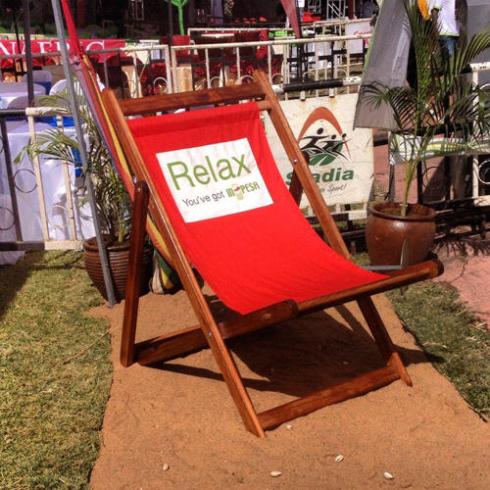Written by FMS Fellow Donna Sinar
In my circles, when we ask “what’s your story?” we want to learn about where someone grew up, what they do for a living, their plans for the evening or something similarly superficial. In contrast, when Resonate leads a workshop with this underlying question, they are probing participants to demonstrate their values through a story of struggle and triumph.
I arrived in Rwanda nearly two weeks ago and already I have enough stories to fill a shoebox. Every morning there’s a story about hailing a moto and moments later engaging the core and hailing Mary, hoping I’ll make it to the office in one piece. There’s the one where I unintentionally ordered goat guts on a stick (it was salty, crispy, and tasty) or the one where I rallied the participants of a training to sing Happy Birthday for Resonate’s Lead Trainer, Solange, though I was totally wrong about it being her birthday.
There are plenty of muzungu in Kigali stories I can tell you. But I want to tell you about the self-transformation and community building that I witnessed at the Nyarirambo Women’s Center (NWC) training in mid-July. It was a Sunday filled with revelations, both for the twelve young staff members and me – and we were not in a church nor a mosque.
NWC is a center in Nyamirambo, an eclectic and vibrant neighborhood in Kigali. The center engages local youth (up to age 35) in hospitality and tourism by training them to lead tours for visitors in their community. We arrived early to set up for Resonate’s core training on Storytelling for Leadership.
The group was insightful, disciplined, and open – different from American youth groups I’ve led. They were quick to connect with Solange, her story, and her facilitation style. One shared his story of abandoning his life as a street kid to finish his high school education and today reaches out to street kids to show them another way. Another illustrated her strong-held values of self-respect by opening up about rejecting a Sugar Daddy’s propositions. A third shared his experience as a young elected neighborhood chief and the challenges that arose when he was put in positions of contesting his neighbors and elders.
When each in the group had learned to tell their story succinctly and heard of the trials and victories of their peers, a seismic transformation occurred both individually and collectively. Evidence and testimonials of group bonding captivated the room. “I love that we are just like a family… [and] hearing from all who shared their story” proclaimed an NWC participant. While the group grew closer, each person held within them a reminder of the courage they already possessed. Resonate’s training taps into the existing well of bravery, strength, and love within each person and gives permission and guidance for participants to tell it in a compelling way. On a pragmatic level, the young tour guides learned a new way to connect authentically with tourists as well as a way to present and express themselves and their ideas in their future professional and personal endeavors.
What results from the workshop is an outpouring of love: self-love and familial love, which is ground zero for social change. Like Cornell West beautifully stated: “Justice is what love looks like in public.” Resonate’s Storytelling training lays the foundation for individuals to take on leadership, call for action in the face of injustice, and mobilize others for change.
I had the privilege to learn that storytelling is an opportunity to connect more deeply with peers and strangers alike. Through telling our stories we can build a more intimate relationship with ourselves as well as the circles we walk in. Listening and telling our stories serve as windows to the shared human experience. After all, stories are the background music to falling in love and stories can also make the dangerous mistake of broadcasting a single narrative and breed deep-seeded, yet misplaced, hatred (as we’ve seen the pendulum swing both ways here with the genocide twenty years ago and ongoing reconciliation today). For better or for worse, stories move us to small actions and great leaps of passion. Stories, and the people who tell them, hold power for change.
I hope the next time you’re asked “what’s your story?” you will use it as an opportunity to connect and express your love out loud.
About the Author:
Donna has committed her heart and energy to the anti-human trafficking movement for over a decade. Most recently, she headed the anti-human trafficking unit at The Standing Against Global Exploitation (SAGE) Project, a survivor-centered nonprofit organization in San Francisco. Donna is an innovative and adaptive leader, a keen strategic planner and a compassionate team builder. Donna is motivated to weave mission with sustainable business practices to urge meaningful change in the areas of migration, poverty, and exploitation. She is fluent in Hebrew and competent in Spanish; a self-starter and industrious. Communication is her strong suit – she is comfortable in boardrooms and in the field alike and is at her best when she is bridging the two spheres.
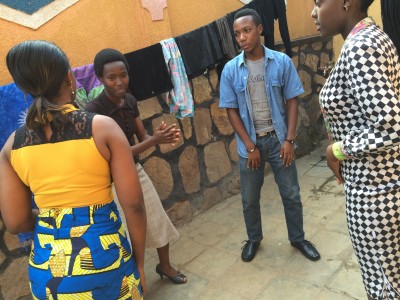




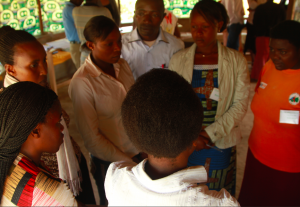
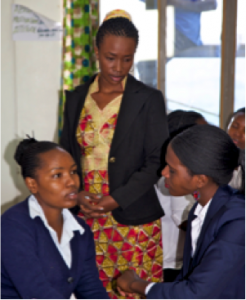
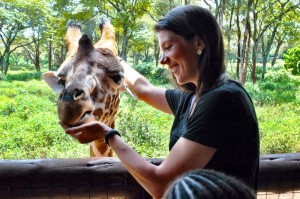

 As progress continues in the upgraded Eco Fuels Kenya factory and daily operation starts to move towards an autonomous flow, the management team now looks forward to further implementing its strategic plan for the future. Specifically what this means is …
As progress continues in the upgraded Eco Fuels Kenya factory and daily operation starts to move towards an autonomous flow, the management team now looks forward to further implementing its strategic plan for the future. Specifically what this means is … 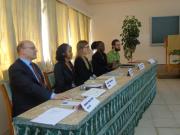
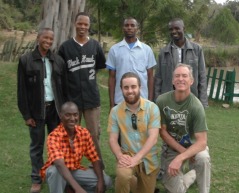
 The weeks between the completion of my Frontier Market Scout (FMS) training at Monterey International Institute and my arrival at the Eco Fuels Kenya factory in Naro Moru, Kenya were filled with anxiousness, anticipation, and excitement. Being reinvigorated about social …
The weeks between the completion of my Frontier Market Scout (FMS) training at Monterey International Institute and my arrival at the Eco Fuels Kenya factory in Naro Moru, Kenya were filled with anxiousness, anticipation, and excitement. Being reinvigorated about social … 